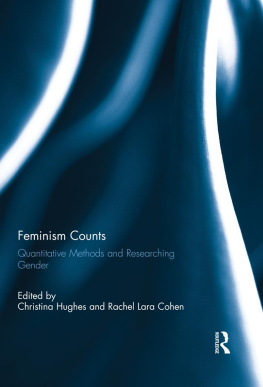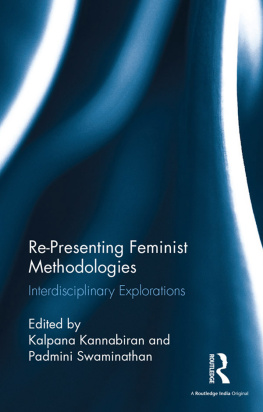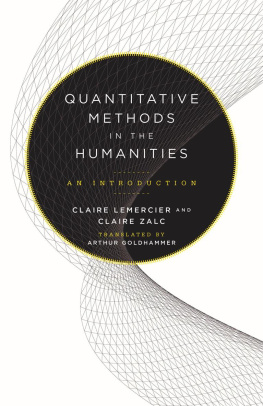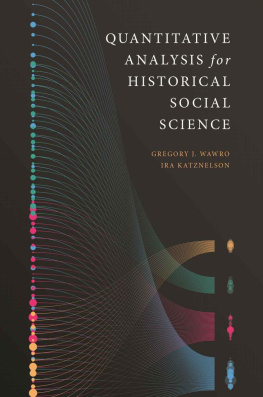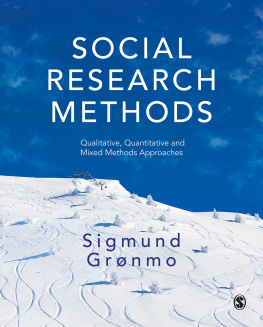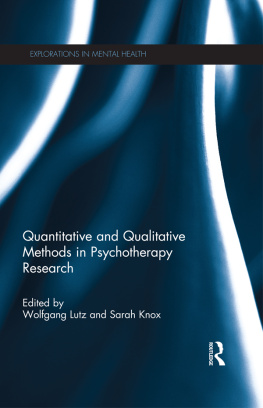Feminism Counts
This is an important and timely text that provides a unique overview of contemporary quantitative approaches to gender research. The contributors are internationally recognised researchers from the UK, USA and Sweden who occupy a range of disciplinary locations, including historical demography, sociology and policy studies. Their research includes explorations of heterosexual and same sex violence, media responses to feminist research, data sources for the study of equalities, approaches for analysing global and local demographic change and intersectional concerns in respect of work and employment.
Through detailed, sophisticated and thoughtful considerations of the place of quantification within gender studies, and the place of feminist approaches to quantification, each contributor overturns the stereotype that quantitative research is antithetical to feminism by demonstrating its importance for challenging continuing global inequalities associated with gendered outcomes. An introductory chapter illustrates the significance of geography and discipline in the take-up of methodological preferences.
Feminism Counts: Quantitative Methods and Researching Gender makes an important contribution to the ways in which feminists respond to contemporary methodological and interdisciplinary challenges, and is essential reading for all research students in gender studies.
This book was originally published as a special issue of the International Journal of Social Research Methodology.
Christina Hughes is Chair of the Faculty of Social Sciences at the University of Warwick, UK. She has longstanding interests in feminist research methodologies and feminist theory, and is founding co-chair of the Gender and Education Association.
Rachel Lara Cohen is a lecturer in the Department of Sociology at the University of Surrey, UK. She uses a mixed methods approach to study work and employment and is interested in the use and teaching of research methods.
Feminism Counts
Quantitative Methods and Researching Gender
Edited by
Christina Hughes and Rachel Lara Cohen
First published 2012
by Routledge
2 Park Square, Milton Park, Abingdon, Oxon, OX14 4RN
Simultaneously published in the USA and Canada
by Routledge
711 Third Avenue, New York, NY 10017
Routledge is an imprint of the Taylor & Francis Group, an informa business
2012 Taylor & Francis
This book is a reproduction of the International Journal of Social Research Methodology, volume 13, issue 3. The Publisher requests to those authors who may be citing this book to state, also, the bibliographical details of the special issue on which the book was based.
All rights reserved. No part of this book may be reprinted or reproduced or utilised in any form or by any electronic, mechanical, or other means, now known or hereafter invented, including photocopying and recording, or in any information storage or retrieval system, without permission in writing from the publishers.
Trademark notice: Product or corporate names may be trademarks or registered trademarks, and are used only for identification and explanation without intent to infringe.
British Library Cataloguing in Publication Data
A catalogue record for this book is available from the British Library
ISBN13: 978-0-415-59206-2
Typeset in Times New Roman
by Taylor & Francis Books
Disclaimer
The publisher would like to make readers aware that the chapters in this book are referred to as articles as they had been in the special issue. The publisher accepts responsibility for any inconsistencies that may have arisen in the course of preparing this volume for print.
Contents
Christina Hughes and Rachel Lara Cohen
Jill R. Williams
Lotta Vikstrm
Jacqueline Scott
Sylvia Walby and Jo Armstrong
Marianne Hester, Catherine Donovan and Eldin Fahmy
Diane Crocker
Notes on Contributors
Jo Armstrong is a Senior Research Fellow in the Department of Sociology, Lancaster University.
Rachel Lara Cohen is a lecturer in the Department of Sociology at the University of Surrey, UK. She uses a mixed methods approach to study work and employment and is interested in the use and teaching of research methods.
Diane Crocker is an Associate Professor in the Deportment of Sociology and Criminology at Saint Marys University where she teaches in the areas of statistics, research methods and feminist criminology.
Catherine Donovan is a Reader in Sociology at the University of Sunderland. She has conducted research in non-heterosexual communities for 17 years, including studies on lesbians and donor insemination; gay, HIV+ and safer sex; families of choice; and more recently, domestic abuse in same sex and heterosexual relationships. She is the co-author of Families of Choice and other Life Experiments (2001) (with Jeffrey Weeks and Brian Heaphy) and the coeditor (with Angelia Wilson) of a special edition of the journal Sexualities exploring same sex parenting. She is currently manager of a five-year evaluation of the Domestic Abuse Intervention Programme in the North East of England and Cumbria.
Eldin Fahmy is a Research Fellow in Policy Studies at the University of Bristol. He has extensive experience of researching poverty, inequality and social exclusion, with particular emphasis on quantitative methods. He has authored Young Citizens: Young Peoples Involvement in Politics and Decision Making (2006 and co-authored Understanding Multidimensional Exclusion Amongst Working Age Adults Without Children (2009) for the UK Cabinet Office Social Exclusion Task Force (with Ruth Levitas, David Gordon, and Demi Patsios).
Marianne Hester is Professor of Gender, Violence and International Policy, and heads the Centre for Gender and Violence Research, at the University of Bristol. She has researched many aspects of gender based violence, involving the UK, China and Denmark, and has published extensively in this area. Recent work includes a study for the UK Government into the extent and nature, service use and service need of lesbian, gay male, bisexual and trangendered victims/survivors of domestic and sexual violence. She is co-author of Making an Impact: Children and domestic violence (2007) (with Chris Pearson, Nicola Harwin and Hilary Abrahams) and of Mothering Through Domestic Violence (2006) (with Lorraine Radford).
Christina Hughes is Chair of the Faculty of Social Sciences at the University of Warwick, UK. She has longstanding interests in feminist research methodologies and feminist theory, and is founding co-chair of the Gender and Education Association.
Jacqueline Scott is Professor in Empirical Sociology at the University of Cambridge and a Fellow of Queens College. She directs the ESRCs Research Priority Network in Gender Inequalities in Production and Reproduction (GeNet). She has recently co-edited Women and Employment: Changing Lives and New Challenges (Edward Elgar, 2008) and Gender Inequalities in the 21st Century: New Barriers and Continuing Constraints (Edward Elgar, 2001).
Lotta Vikstrm is historical demographer and Associate Professor of History, associated with the Centre for Population Studies, Ume University, Sweden. In 2003 she defended her thesis, Gendered Routes and Courses: The Socio-Spatial Mobility of Migrants in Nineteenth-Century Sundsvall, Sweden

